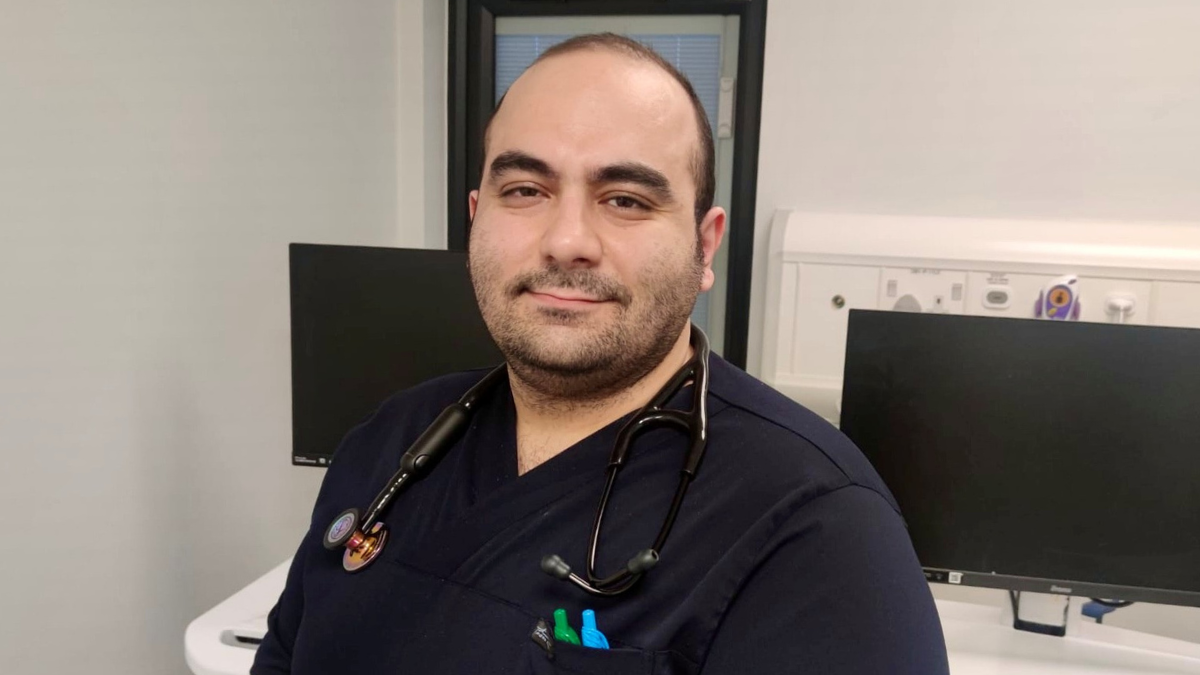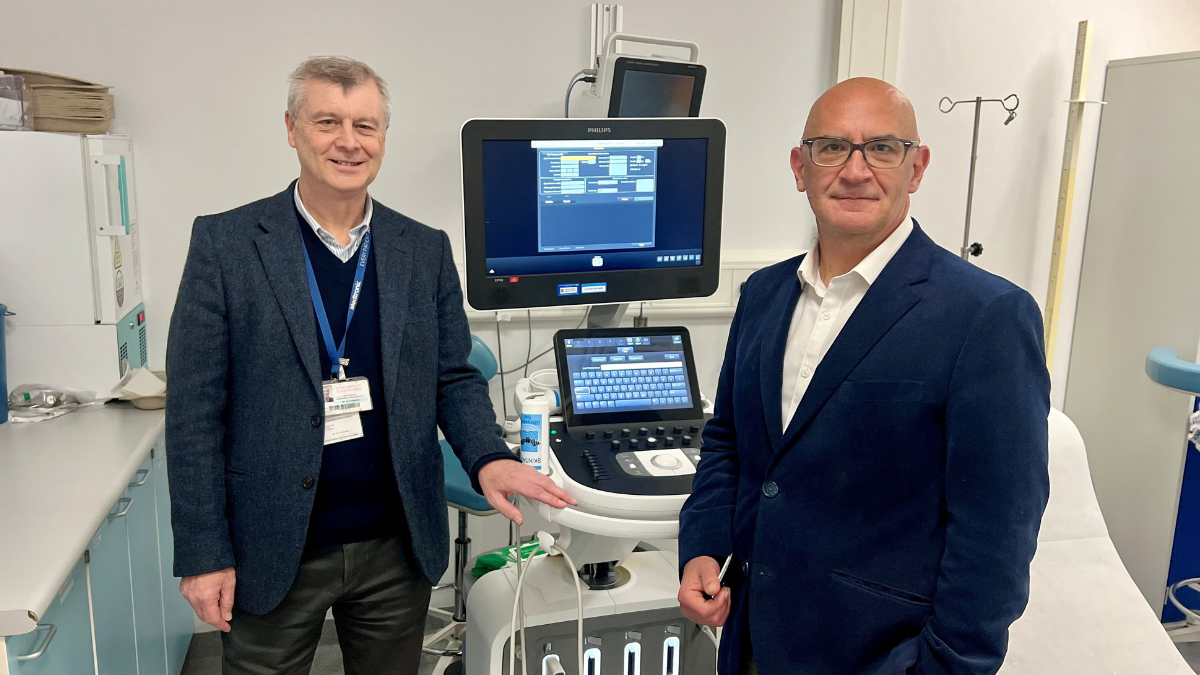Virtual reality helps ease the pain for patients
Published on 11/02/2025
Patients are being offered the chance to enter a virtual reality world, to calm and distract them, while they are having a painful procedure at Queen Elizabeth Hospital Birmingham (QEHB).
The pioneering approach is being tried out on people having a kidney stone removed, who are being given ‘shockwave’ treatment to get rid of the stone.
It’s believed to have been the first time virtual reality (VR) has been used in the treatment of kidney stones in the UK.
Shockwave treatment involves the patient lying for 30-40 minutes on a table and having 3,000 shocks delivered to the stone.
Patients are given a VR headset prior to the procedure. They enter a virtual environment with patterns and shapes, designed for relaxation, and with breathing patterns, designed to give them a meditative feeling.
Ivo Dukic, Urology Consultant, carried out the first treatment using the virtual reality approach at QEHB at the end of last year.
He said: "Using the software and the headset allows the patients to go through a virtual woodland, with the movement in the virtual environment accompanied by relaxed breathing.
“This helps calm and distract the patient from the shockwaves used to break the stones that are present in the kidney or ureter.
“Previous studies have found that this distraction technique of virtual reality reduces the pain experienced during shockwave treatment and allows a higher energy of shockwaves to be delivered to help break kidney stones.
“The virtual reality really enhanced the experience of our patient, who was able to tolerate a much higher energy of treatment with the same painkillers as he had the on the first occasion.
“He also found that he felt the procedure, which lasts 30-40 minutes, went much more quickly on this occasion (his second treatment), and was much more pleasant overall.”
Karl Roberts, who was the first patient to undergo shockwave treatment using the VR headset, said: “The VR system helped tremendously during the procedure. Despite noticing the increase in pain, the VR platform helped to keep me distracted and to have something to focus on. The procedure, which was around 45 minutes, felt a lot shorter.“
Baljit Tanda-Bosson, Renal Stone Specialist Nurse, who has been working on the project, added: “This new approach has been really good, and has worked in both relaxing patients and giving them a distraction”.
The same VR technology could also be used to help distract patients having other sorts of urological procedures.
If the technology means that more patients have this type of treatment, and therefore avoid more costly general anaesthetic surgery, this could also save money.


